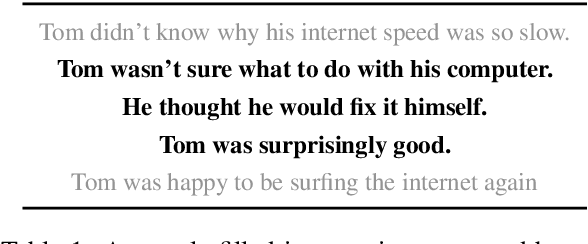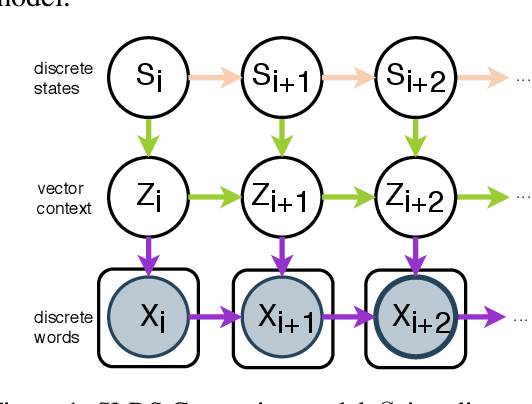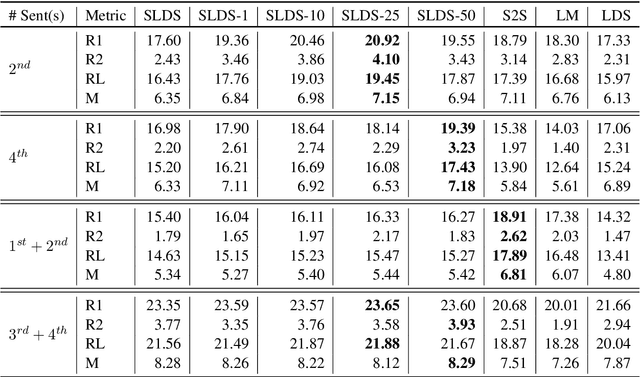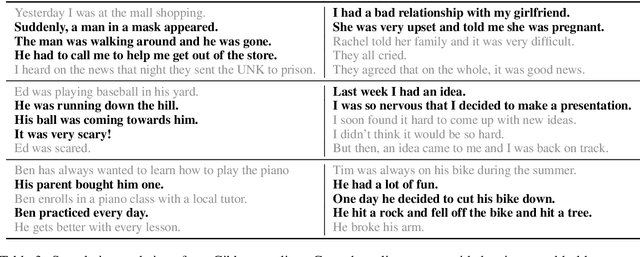Generating Narrative Text in a Switching Dynamical System
Paper and Code
Apr 08, 2020



Early work on narrative modeling used explicit plans and goals to generate stories, but the language generation itself was restricted and inflexible. Modern methods use language models for more robust generation, but often lack an explicit representation of the scaffolding and dynamics that guide a coherent narrative. This paper introduces a new model that integrates explicit narrative structure with neural language models, formalizing narrative modeling as a Switching Linear Dynamical System (SLDS). A SLDS is a dynamical system in which the latent dynamics of the system (i.e. how the state vector transforms over time) is controlled by top-level discrete switching variables. The switching variables represent narrative structure (e.g., sentiment or discourse states), while the latent state vector encodes information on the current state of the narrative. This probabilistic formulation allows us to control generation, and can be learned in a semi-supervised fashion using both labeled and unlabeled data. Additionally, we derive a Gibbs sampler for our model that can fill in arbitrary parts of the narrative, guided by the switching variables. Our filled-in (English language) narratives outperform several baselines on both automatic and human evaluations.
 Add to Chrome
Add to Chrome Add to Firefox
Add to Firefox Add to Edge
Add to Edge